More than a month into what was originally a four-day scheduled internet outage and with the academic year getting started, the college is still in the process of ironing out wrinkles that popped up during the effort to update campus network infrastructure.
Though all main campus buildings — with the exception of Carr Hall and Oddfellows — have wireless connectivity as of Aug. 27, there is still a significant amount of “interference causing poor user experience,” according to Chief Information Officer Katrina Yeung. Yeung said that the college currently has a plan to address lingering connectivity issues.
Over a month ago, in a campus-wide email on July 25, Yeung announced there would be a scheduled network outage from July 27 to Aug. 1 due to maintenance from the college’s internet service provider.
On Aug. 3 Yeung sent out a follow-up email explaining that the network outage did not end when they had predicted it would.
“We continue to address unexpected challenges that have been encountered during the WiFiber implementation,” Yeung wrote. “The team has been working tirelessly, and I thank them for their dedication and all of you for your patience during this significant upgrade for the campus. We will continue to push forward in order to get us over the finish line.”
Three days and several network update emails later, on Aug. 6, Yeung again cited “unforeseen complications” as an explanation for why the network was still not functioning.
Then, on Aug. 14, a campus-wide email announced a change in the college’s internet provider.
“This weekend we made a change to the provider supporting our work to bring the new network up and fully operational,” Yeung said. “Wi-Fiber is no longer working on the project as we move toward completion.”
The college initially opened a contract with Wi-Fiber in the spring of 2022, switching from its previous internet provider, Apogee. Wi-Fiber began to install new updated network infrastructure around campus, including a new fiber-optic cable system and access points, which are what devices connect to when looking for Wi-Fi. In October of 2022, Systems Administrator Doug Tomer told The Campus that, while he couldn’t make any guarantees, he expected the new network to be available for students when they returned for the spring 2023 semester. However, by the time the 2022-23 academic year ended, the Wi-Fiber network still had not been activated, according to Yeung.
Yeung started in her position as chief information officer on July 5 of this year. Yeung recalled speaking with President Ron Cole, ’87, about the two priorities she had in her new role: finishing the college’s network updates and improving cybersecurity measures. In an interview with The Campus, she described Wi-Fiber’s work to update the college’s network when she started at the college as “not progressing.”
“Coming in with a new set of eyes, I could clearly see there was a challenge with the working relationship between us and them,” Yeung said. “And ultimately we got to a point where it just felt like they weren’t prioritizing the work and getting it done in order to have a great plan. So we needed a change.”
Both Yeung and Dean for Student Life Trae Yeckley say they do not know why the college chose to open a contract with Wi-Fiber. They said that the responsibility was that of former Chief-of-Staff Kevin Kovalycsik.
“He was the one that found Wi-Fiber, he was the one that negotiated the contract, he signed it,” Yeung said.
Now, the college is partnering with Coppola Enterprises and Network Technologies to finish the project. Due to her connections to the companies, Yeung feels confident that they will work more efficiently than Wi-Fiber.
“With Coppola, Rick Tautin, ’03, is an Allegheny grad and he worked here previously so he had a lot of insider knowledge, so we had comfort with him,” Yeung said. “And then Network Technologies — I actually worked with them at my last company, so again I had comfort with them that they knew what they were doing and could get here quickly. The two of them working together has definitely sped up the process.”
Currently, while all the buildings on campus have wired internet, only half have wireless. And even though residential buildings have been prioritized, not all have reliable internet. Allegheny Commons, College Court, and Edwards Hall have limited connectivity, according to a campus-wide email sent out on Friday, Aug. 25. The email also announced that the Loomis Street houses will not have wireless connectivity until the first week of September at the earliest.
Even in buildings where the Wi-Fi is said to be up and running, there are still reports of unstable network connectivity. Yeung said this can be partially explained by the fact that not all of the access points on campus are working. Of the 2,276 access points Wi-Fiber installed, only 1,200 are working as of Aug. 25, according to Yeung. So, in places like residential halls, multiple students may be trying to connect to a single access point several rooms down because the one in their own room is not working. The farther away the access point, the less stable the connection.
On top of the low quantity of functioning access points, they still have yet to be tuned, a process that will take around a week or two, Yeung said
“Wireless runs over radio wave,” she said. “Right now, all the access points are running on one channel. So if you think — put all of those 2,000 access points in one tiny room and you all put them on a singular channel, how do you know which one to listen to? There’s just a bunch of noise. So we need to put them on, strategically, we need to put them on different channels so your devices can more easily find the one they’re supposed to listen to.”
Unfortunately, Yeung cannot see which access points are working and which are not.
“The original company we had in here did not do a great job of labeling, so we see just a generic name on everything and I don’t know where it sits,” Yeung said. “I can narrow it down to a building. I can’t narrow it down to a hallway.”
However, Yeung feels confident she will be able to figure out the problem with some help from students and patience for the “tedious and time-consuming” task.
Carr Hall and Oddfellow will not have wireless connectivity until at least the first week of September, according to a campus-wide email sent out on Friday, Aug. 25.
“Your guess is as good as mine,” Yeung said in reference to why Wi-Fiber had not yet installed the necessary infrastructure in either of those buildings.
Once the college finds an electrician to contract with, it will only take a couple of days for the fiber-optic cables to be installed.
By the time the network infrastructure update is complete, the college will have a fiber-optic system that supports 200% more throughput than its predecessor, new and improved firewalls, new access points, and new switches, which are the dashboards that every fiber-optic cable runs through at some point on campus. Additionally, the college will have new cores, which are integral for managing network usage on campus. The cores that were in use last year were more than 20 years old, even though that piece of equipment should be replaced every five to seven years, according to Yeung.
The MyDevices network will not be operational for the foreseeable future because the college’s new internet providers still “need to figure it out,” according to Yeung. In the interim, students can request a hardwired connection in their residential room by filling out a WebHelp ticket.
“We really appreciate the students’ understanding and patience, and we will continue to update with information as much as we’re able,” Yeckley said. “If students have questions, they can reach out to me, they can reach out to IT and we can try to get them the best responses that we can actually give.”
The last item on the agenda is aligning the branding on network infrastructure around campus to align with the current internet providers.
“We also need to find a way to cover up the yucky Wi-Fiber stickers on (the access points),” Yeung said. “So if anybody has some intriguing ideas.”




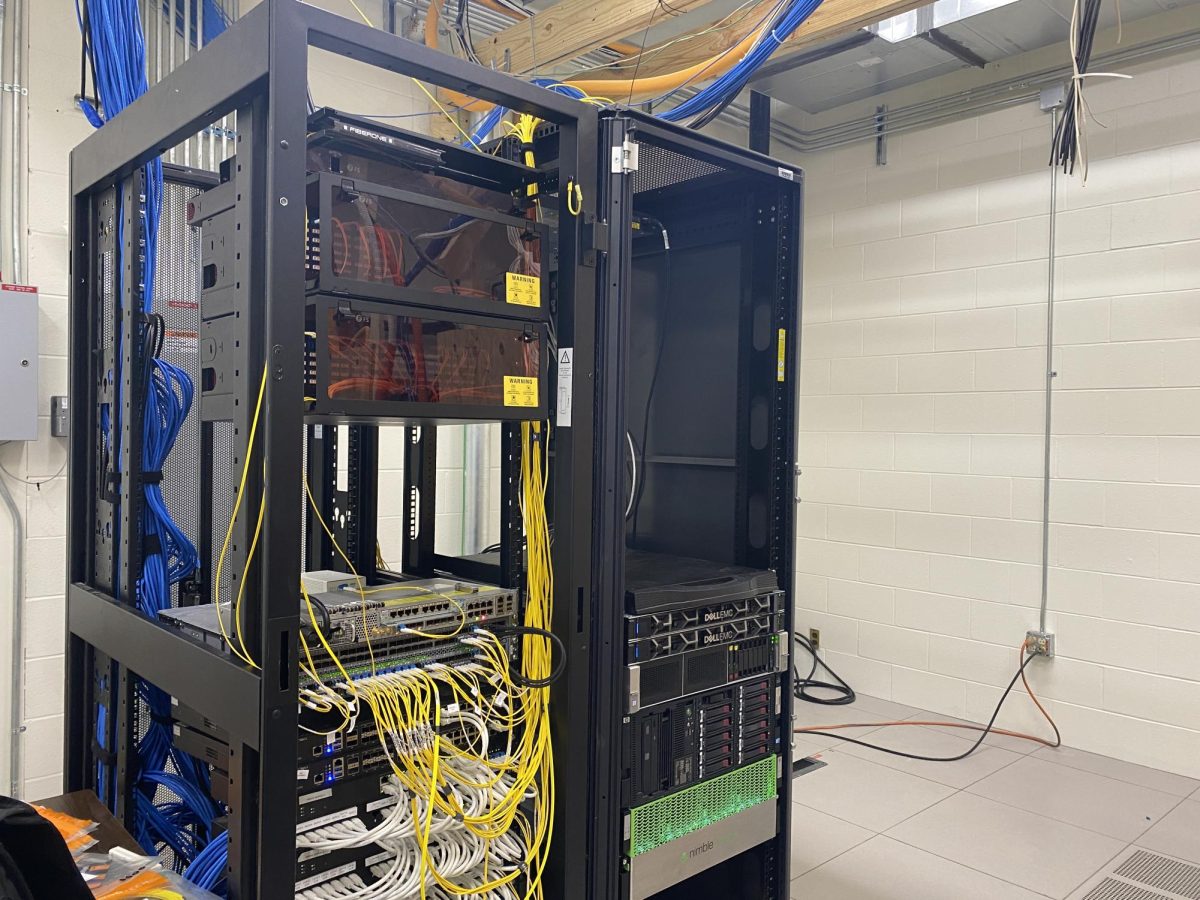




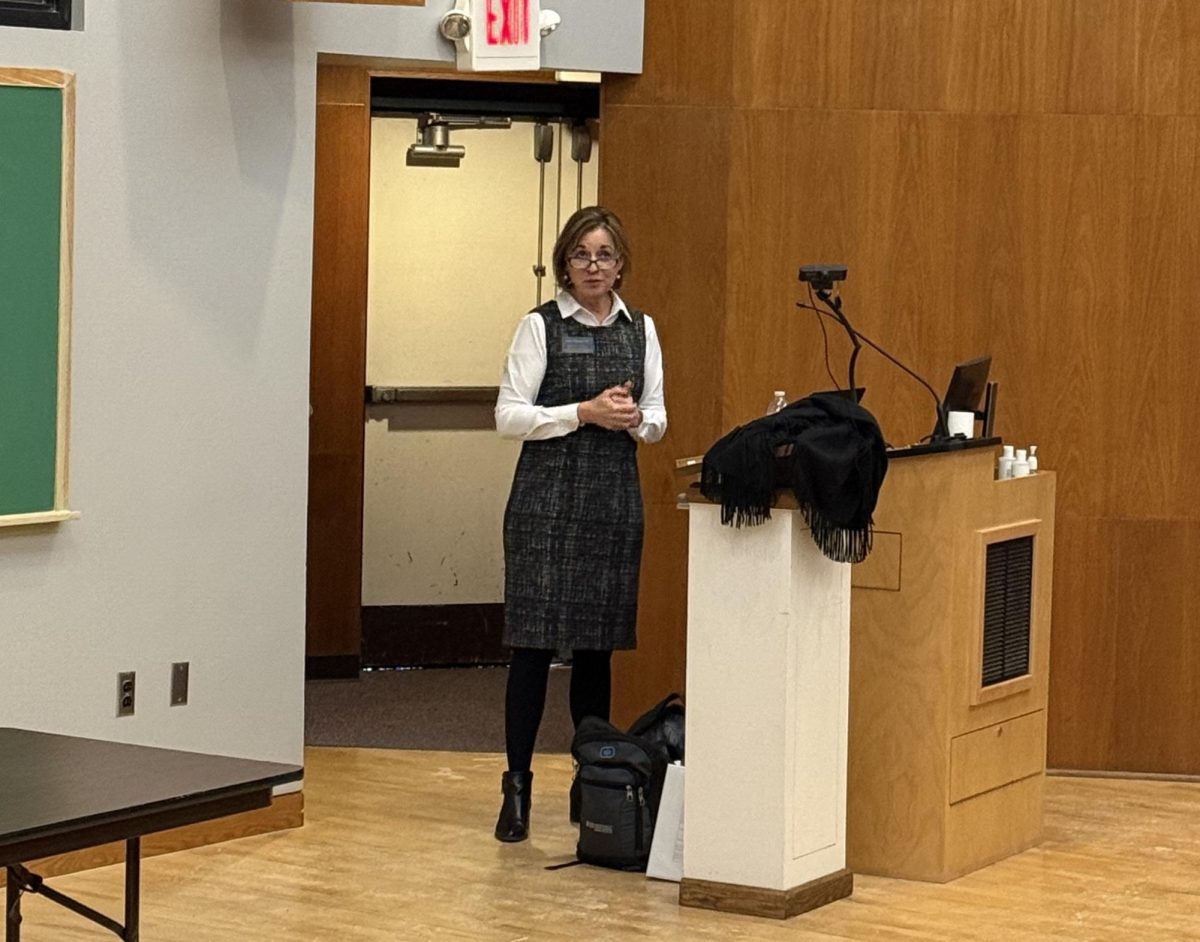
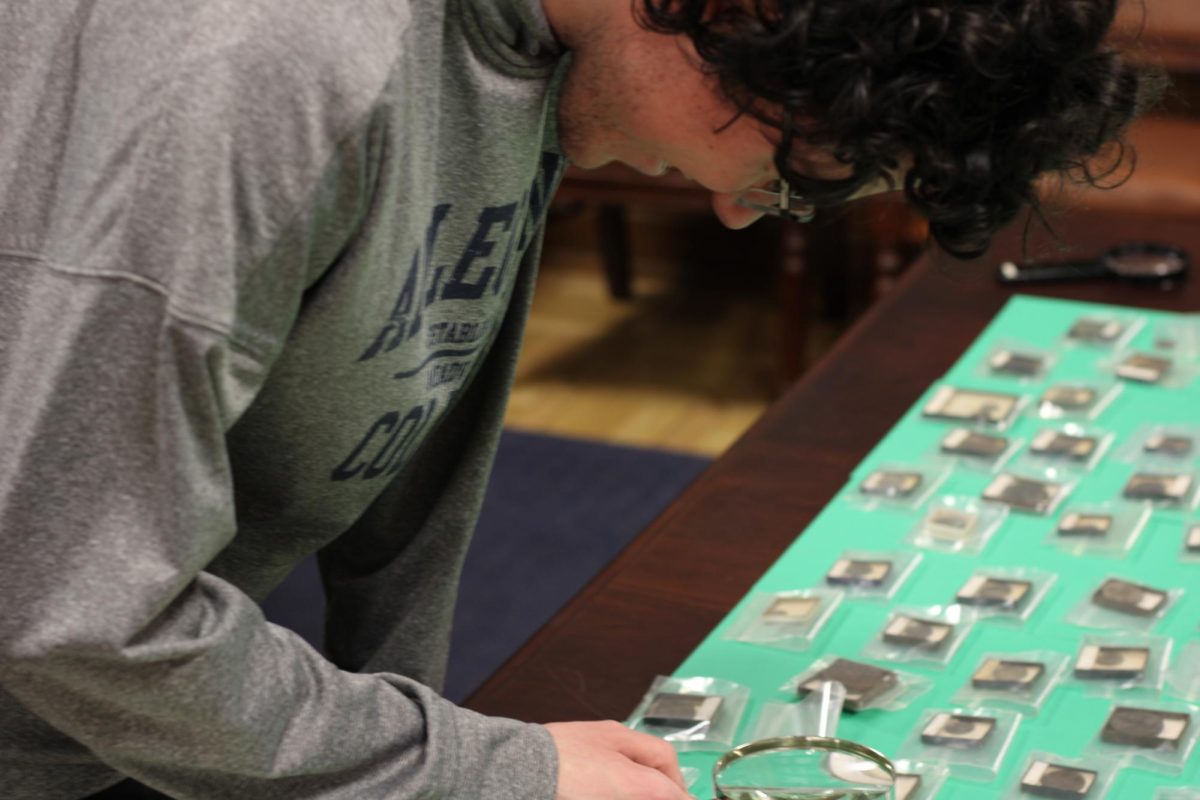
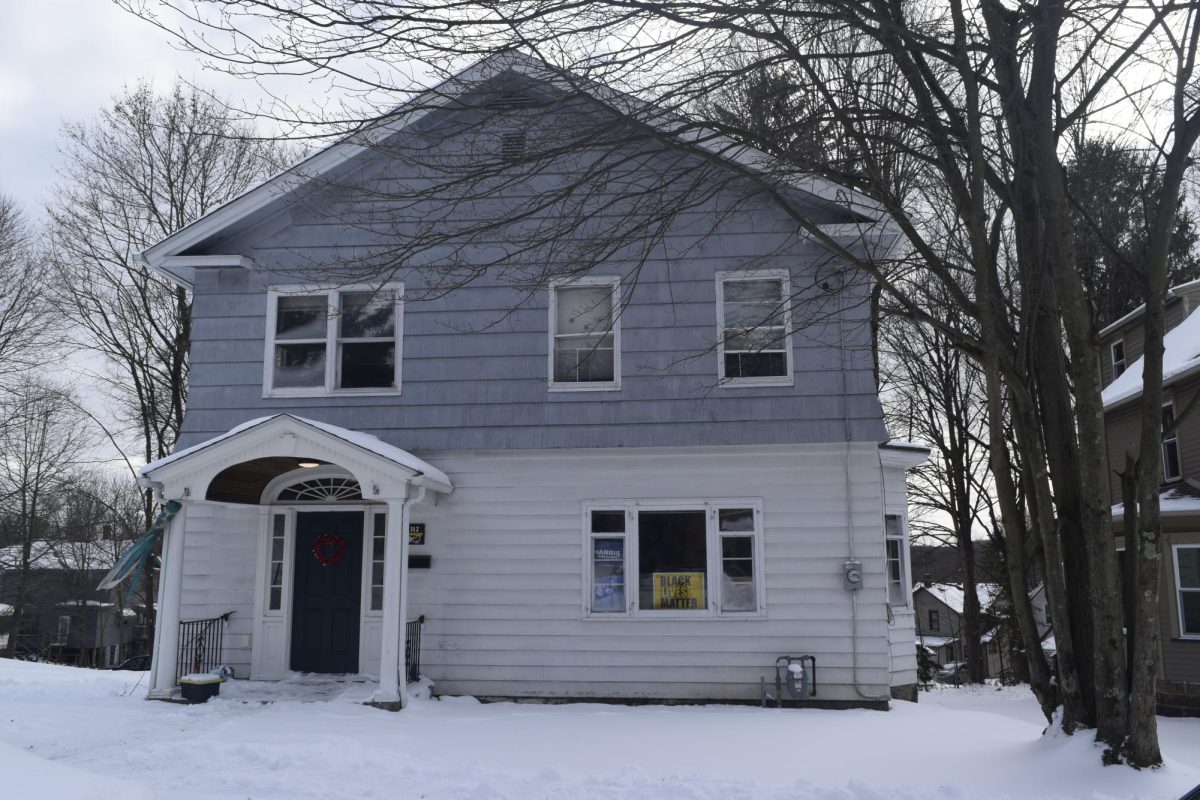
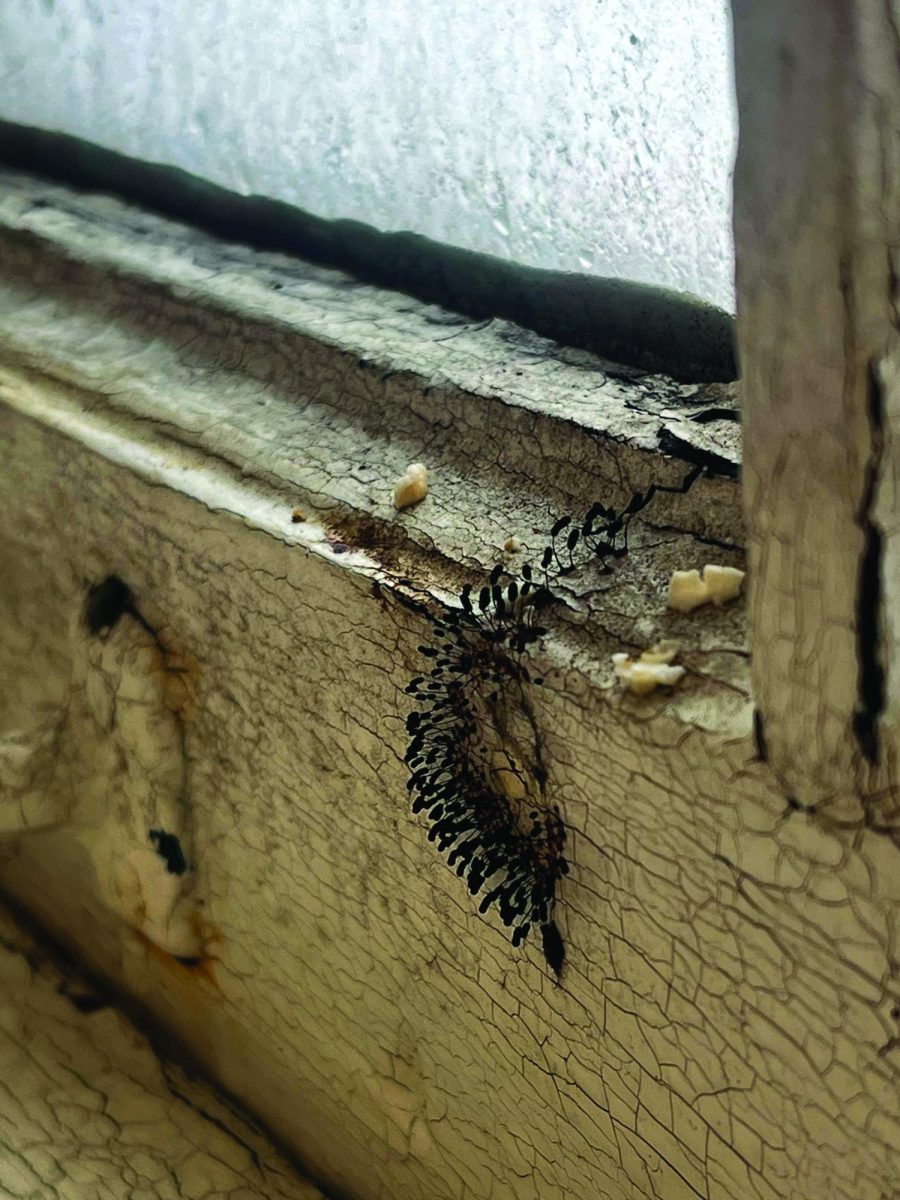
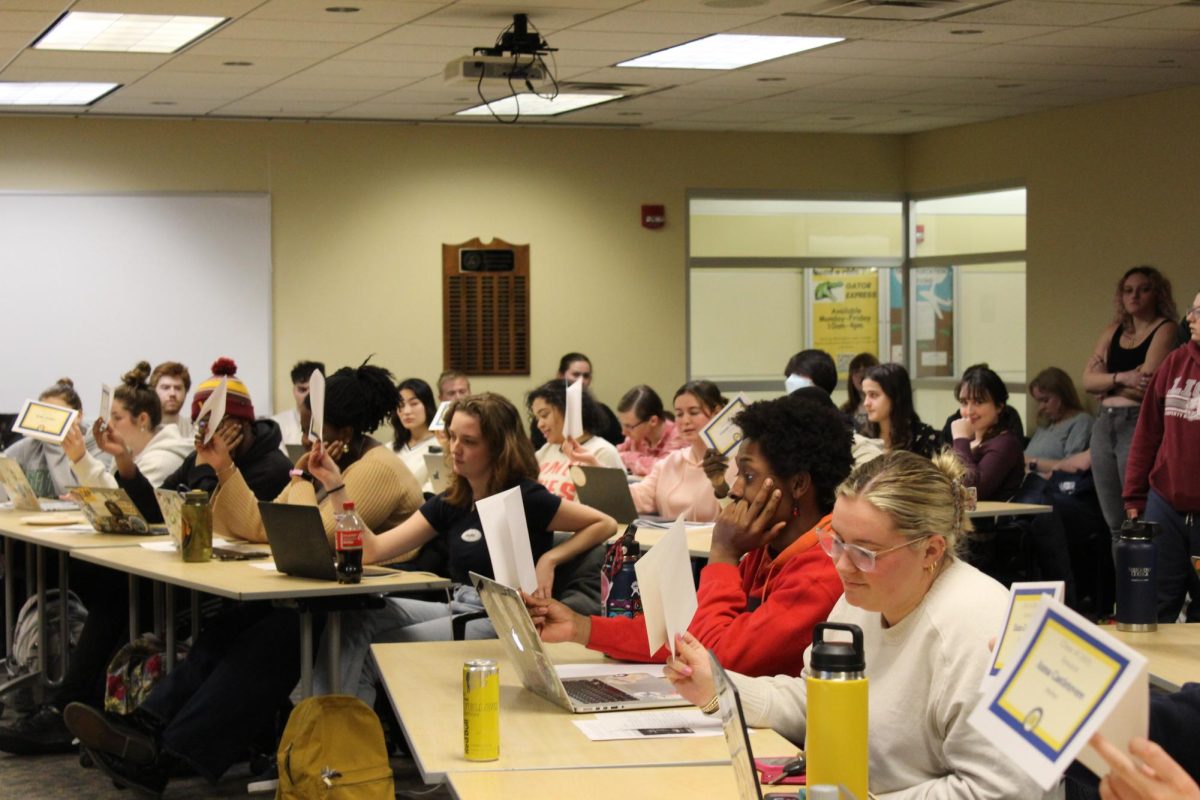
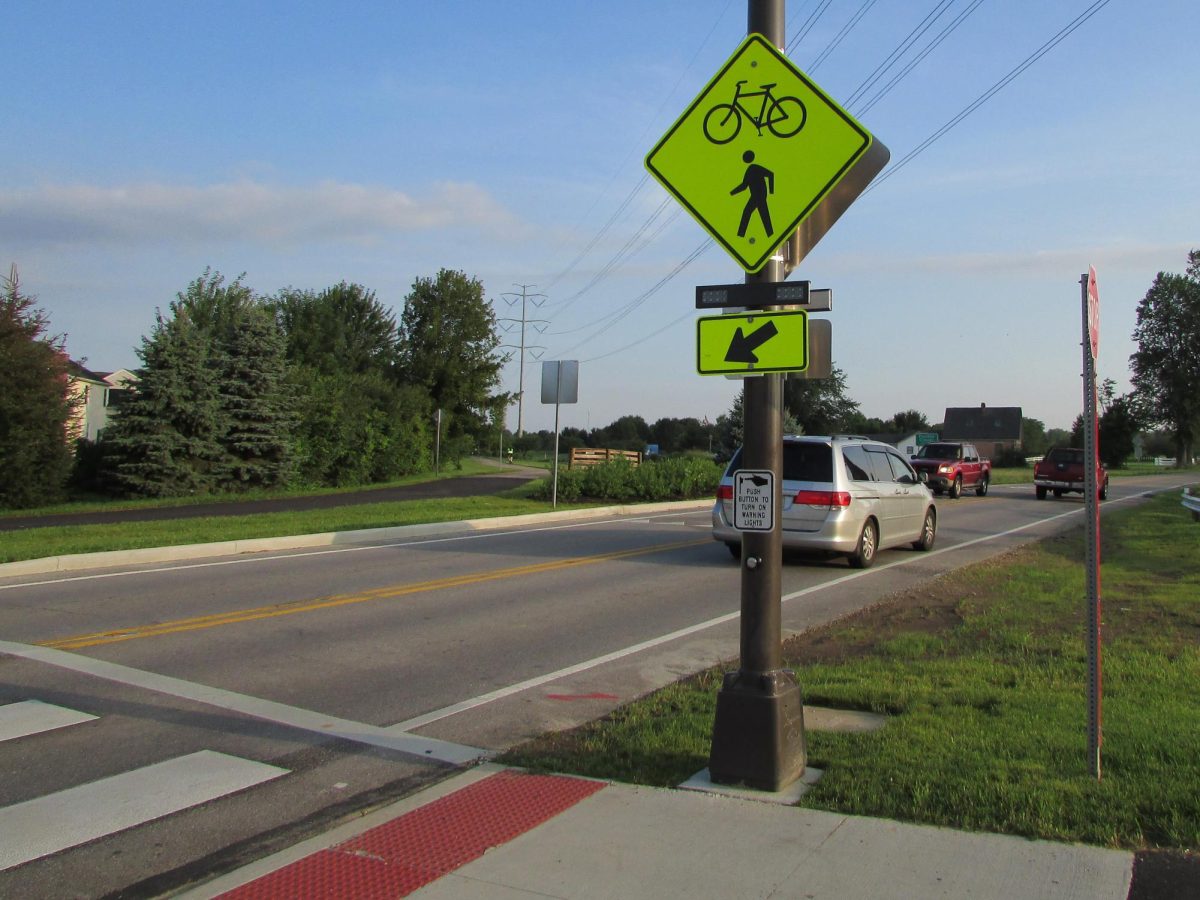
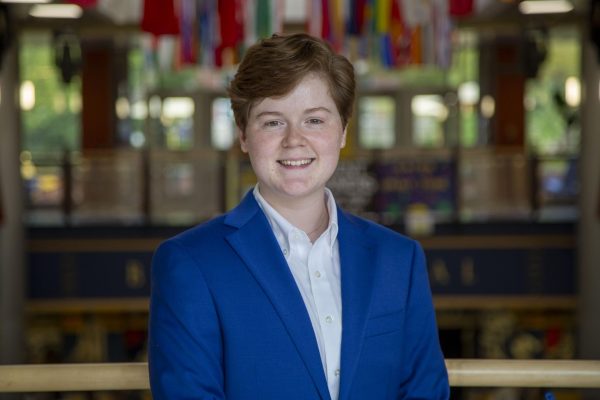
Alum '23 • Sep 1, 2023 at 2:30 pm
The college’s WiFi has been a known issue that has interfered with students’ academics since 2020, so why is there only a robust plan in place to switch it now? I really hope that Yeung’s outline plan actually succeeds and she does seem to have better knowledge of what’s going on than multiple previous administrators that were just sort of like “eh, let’s switch providers” without doing further research and made it worse, but as a CS alumni I can say that this has been an issue that the administration has wanted to overlook forever and wish Yeung and her peers the best in changing this precedent.